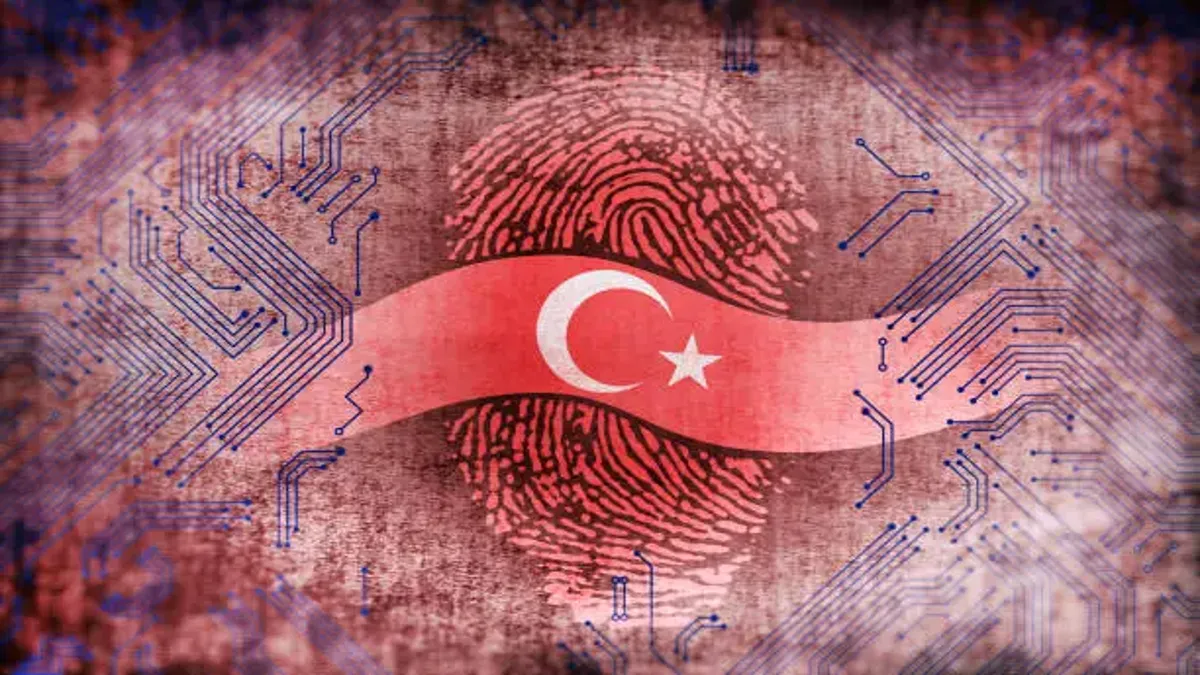Across the expanding realm of language and digital culture, certain words seem to emerge from nowhere and captivate global attention. “Çbiri” is one such term—a compact, enigmatic word whose origins and meanings have spurred conversation across linguistic, cultural, and online communities. For those encountering it for the first time, “çbiri” often raises the question: What does it mean, where did it come from, and why is it spreading so rapidly across digital platforms? Within the first few sentences, the essence of “çbiri” becomes clear—it represents a fascinating case of linguistic evolution shaped by cultural identity, internet virality, and the blending of old and new linguistic norms. This article unpacks its layers, tracing its etymology, contextual applications, symbolic meanings, and the broader narrative it reflects about how words gain power and presence in today’s interconnected world. By examining its use in conversation, media, and digital expression, readers will understand why “çbiri” is more than a mere word—it’s a linguistic mirror reflecting how identity, humor, and globalization shape our communication patterns today.
The Etymological Roots of “Çbiri”
Language experts often note that hybridized words like “çbiri” reveal the natural evolution of communication in multilingual societies. Its root is believed to derive from the Albanian word “ç’bëri,” which translates to “what did he/she do?” in English. Over time, shortened forms such as “çbiri” appeared across online chat forums and text messages, illustrating the digital tendency toward linguistic efficiency. According to linguist Dr. Arben Dervishi, “The simplification of Albanian verbs and their adaptation to texting syntax is reshaping how young people communicate.” This insight underlines the living nature of language, particularly in regions where mobile technology and bilingual expression coexist. In this sense, “çbiri” serves as a phonetic shortcut, merging practicality with cultural flavor—a microcosm of how language evolves through everyday digital interaction.
Digital Emergence: The Rise of “Çbiri” in Online Spaces
The widespread recognition of “çbiri” owes much to social media’s influence. Platforms such as TikTok, X (formerly Twitter), and Instagram have amplified its visibility, with users employing it as both a phrase and meme caption. Often used humorously, “çbiri” functions as a playful expression of curiosity or disbelief. For instance, a user might post an ironic video followed by the caption “çbiri??” to imply, “What on earth just happened?” The humor lies in its simplicity—a universal reaction condensed into a culturally distinct word. “Internet slang is no longer bound by geography,” notes cultural researcher Elira Kelmendi. “A single word from a local dialect can now become a cross-border meme within hours.” The virality of “çbiri” exemplifies how local languages thrive within globalized networks, maintaining identity even in the face of homogenized internet culture.
Social Meaning: Humor, Irony, and Identity
Beyond humor, “çbiri” conveys nuanced emotional tones. It can express mock confusion, playful sarcasm, or mild exasperation depending on tone and context. In group chats among Albanian speakers, the word often acts as a gentle icebreaker, softening criticism or highlighting absurd situations. Linguistic sociologist Mira Basha observes, “It’s less about literal translation and more about emotional economy. ‘Çbiri’ conveys attitude, not just information.” That subtlety demonstrates how digital vernacular evolves into emotional shorthand. The rise of emoji culture complements this trend—language is becoming increasingly visual and emotionally coded. “Çbiri,” positioned between a question and an exclamation, mirrors the online generation’s preference for expressive efficiency.
Cultural Retention and Linguistic Innovation
The journey of “çbiri” also reveals how language preservation and innovation coexist. For many younger Albanians living abroad, using “çbiri” online symbolizes a cultural link to their homeland. It stands as a linguistic anchor in multilingual digital environments. Scholars call this phenomenon “digital bilingualism,” where speakers blend native words within global English-based spaces. A brief comparison helps illustrate:
| Context | Usage of “Çbiri” | Equivalent in English |
|---|---|---|
| Online chat between friends | “Çbiri, why are you late again?” | “What did you do now?” |
| Meme caption | “When he says he’ll text back but doesn’t… çbiri??” | “What happened??” |
| Irony or disbelief | “She actually bought that dress again—çbiri!” | “Seriously?” |
This bilingual play not only keeps native expression alive but also encourages global audiences to explore linguistic diversity. In digital linguistics, “çbiri” becomes a cultural signature—both a question and a statement of belonging.
The Linguistic Structure: How “Çbiri” Functions
Analyzing “çbiri” grammatically uncovers why it feels both modern and traditional. Derived from “çfarë bëri” (meaning “what did he/she do”), the contraction eliminates unnecessary syllables while preserving meaning. Linguistically, it represents phonetic economy, a trend common in texting culture. Phonetic economy reduces effort while maintaining intelligibility. Similar patterns appear in English (“gonna,” “wanna”), Spanish (“pa’que”), and Turkish (“napıyo”). What distinguishes “çbiri” is the diacritic “ç,” anchoring it firmly within Albanian orthography. Its fusion of colloquial compression and cultural identity makes it a hallmark of digital linguistic creativity. As technology changes how we type and speak, words like “çbiri” serve as snapshots of that transformation.
“Çbiri” in Everyday Communication
In modern conversation, “çbiri” adapts flexibly across formal and informal settings. In text messages, it signals curiosity or sarcasm; in spoken dialogue, it may appear jokingly among peers. Teachers in Albanian-speaking regions have even reported its appearance in classroom essays—evidence that internet language is reshaping academic norms. While purists argue this trend dilutes linguistic precision, others celebrate it as a sign of living language. As one teacher humorously put it, “If students write ‘çbiri’ in essays, at least they’re thinking in Albanian, not emojis.” Such adaptation demonstrates that linguistic innovation often begins at the grassroots level, where usage defines legitimacy more than grammar ever could.
Comparative Analysis: The Global Trend of Abbreviated Expression
“Çbiri” belongs to a broader family of shortened digital expressions that transcend linguistic borders. English speakers type “wyd” for “what are you doing,” French users say “mdr” (mort de rire, meaning “dying of laughter”), and Koreans write “ㅋㅋㅋ” to express laughter. Each of these examples fulfills a shared purpose—accelerating emotional exchange while maintaining cultural individuality. This demonstrates that abbreviation equals adaptability. In a comparative linguistic study from 2023, researchers found that over 68% of active internet users employ local-language abbreviations in at least one digital platform. The enduring popularity of “çbiri” exemplifies how linguistic identity coexists with technological modernity, offering users both familiarity and efficiency.
The Psychological Layer: Curiosity, Community, and Connection
Psychologically, “çbiri” encapsulates one of the oldest human impulses—curiosity. Every usage of the word implies a desire to understand or react. Its humor arises from shared context: when everyone “gets it,” the word creates instant belonging. Online communication thrives on such micro-bonds. Psycholinguist Ana Gjoka explains, “When a word like ‘çbiri’ spreads, it’s not just a linguistic event—it’s a social handshake.” That connection strengthens cultural cohesion, especially within diasporic communities. Through humor and relatability, language becomes a soft instrument of identity preservation in an increasingly borderless world.
Linguistic Resistance: Preserving Diacritics in a Keyboard World
Another layer of “çbiri’s” story lies in orthography. The character “ç” poses a minor challenge on non-Albanian keyboards, yet users frequently preserve it even when autocorrect interferes. This persistence is symbolic. It demonstrates quiet resistance against digital homogenization. In a world where predictive text often defaults to English, retaining “ç” becomes an act of cultural assertion. “Every accent mark is a reminder of who we are,” writes cultural commentator Lira Hoti. Thus, the continued usage of “çbiri” underscores how even small orthographic choices reflect deeper struggles over identity in global communication.
The Role of Media and Memes in Propagation
The life cycle of modern slang relies on virality, and “çbiri” has enjoyed its share of meme-fueled momentum. Short-form videos, reaction GIFs, and social posts have transformed it into a flexible punchline. Memes featuring bewildered expressions, pets, or politicians often carry the caption “çbiri???” to convey disbelief. This trend bridges generational gaps—older speakers appreciate its humor, while younger users remix it creatively. Such phenomena illustrate the democratization of language production: once confined to dictionaries, word evolution now unfolds collaboratively in comment sections. The meme-ification of “çbiri” thus ensures its relevance beyond linguistic circles.
Academic Perspectives: Language Change in Real Time
Linguistics departments across Europe increasingly examine “çbiri” and similar phenomena to document real-time language change. Digital corpora tracking social-media usage show exponential growth in the term’s frequency between 2020 and 2024. Scholars classify it under “spontaneous lexical innovation,” meaning words that gain traction without institutional endorsement. According to researcher Dr. Indrit Kole, “What’s fascinating about ‘çbiri’ is its organic rise—it didn’t come from media but from ordinary users.” This bottom-up evolution challenges traditional linguistic models and proves that the internet, not academia, now drives much of contemporary language creation.
The Commercial and Branding Angle
Surprisingly, even marketing professionals have taken notice of “çbiri.” Local Albanian brands use it in slogans and ad campaigns to evoke humor and authenticity. For example, a coffee brand once ran a campaign featuring the tagline “Çbiri, no coffee today?”—cleverly turning a common phrase into an emotional appeal. Such usage demonstrates how colloquial terms can humanize marketing, fostering relatability among audiences. As businesses increasingly blend local expression with global branding, “çbiri” becomes a valuable linguistic asset—short, catchy, and instantly recognizable.
Language, Emotion, and the Digital Self
The resonance of “çbiri” lies in its emotional adaptability. It can express surprise, amusement, or concern—all in two syllables. Emotionally efficient words thrive in digital culture because they align with fast communication styles. Cognitive linguist Rudi Marku describes them as “emotional shortcuts that preserve human warmth in mechanical communication.” In that sense, “çbiri” balances efficiency and empathy—a reminder that behind every screen sits a person seeking connection, humor, or understanding.
Challenges of Translation and Cross-Cultural Understanding
Translating “çbiri” into English or other languages often strips it of nuance. Literal translations capture the meaning but not the tone. Context defines interpretation; tone defines emotion. This is why translation software frequently misreads its intent. Such challenges highlight the limitations of AI and machine translation in preserving linguistic emotion. Words like “çbiri” remind us that language is not only a vehicle of information but also of identity—a human fingerprint that machines can replicate but not feel.
The Future of “Çbiri” in the Linguistic Landscape
Will “çbiri” endure or fade as slang often does? Historical patterns suggest endurance through adaptation. If its emotional and cultural relevance persists, it may enter formal dictionaries or linguistic archives, similar to how “okay” and “selfie” transitioned from slang to mainstream vocabulary. The term’s success ultimately depends on its ability to evolve while maintaining cultural authenticity. Whether used humorously in a TikTok caption or nostalgically in family conversations, “çbiri” embodies the fluid frontier between tradition and innovation—a symbol of how small words can carry vast cultural weight.
Conclusion
In tracing the journey of “çbiri,” one uncovers more than a linguistic curiosity—it becomes a lens into how culture, technology, and identity intertwine. From its Albanian roots to its global digital life, the word represents connection in its purest form: brief, emotional, and deeply human. It illustrates that even as communication accelerates, the desire for expression remains timeless. “Çbiri” stands as both a question and a statement—asking what we’ve done while reminding us of who we are. As languages evolve and adapt to new mediums, words like this ensure that authenticity survives amid the noise of globalization.
FAQs About “Çbiri”
1. What does “çbiri” literally mean?
It originates from the Albanian phrase “çfarë bëri” meaning “what did he/she do?”—used informally to express surprise or curiosity.
2. How is “çbiri” used in conversation?
Typically as a humorous or sarcastic reaction to something unexpected, similar to saying “what happened?” or “really?” in English.
3. Why is “çbiri” popular online?
Its brevity and expressive tone make it ideal for memes, comments, and captions where emotional reaction matters more than grammar.
4. Is “çbiri” considered slang or standard language?
It’s informal but increasingly accepted in everyday speech and media, reflecting the natural modernization of Albanian.
5. Can non-Albanian speakers use “çbiri”?
Yes. Many online users adopt it for its tone and humor, even outside Albanian circles—an example of cultural language sharing in action.











